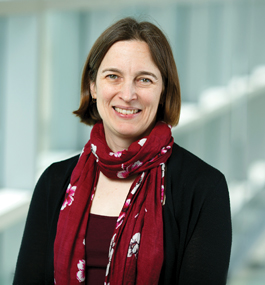Beyond the Ivory Tower: Re-imagining Graduate Studies at GSAS

Mike Lovett
Wendy Cadge
by Simon Goodacre
Yoni Appelbaum, GSAS PhD’14, is a senior editor at The Atlantic. Theresa Rebeck, GSAS MA’83, MFA’86, PhD’89, is among the most successful playwrights working today. Former three-term Philadelphia city commissioner Al Schmidt, GSAS PhD’00, like Appelbaum, studied history at Brandeis.
This trio of alumni are living proof that doctoral education doesn’t only produce candidates for the professoriate. These days, PhDs are far more likely to find professional success outside the ivory tower than within it, a trend that’s been gathering momentum for decades, and was accelerated by the 2008 financial crisis and the COVID-19 pandemic.
Today, only one in eight students who begin a doctoral program will ultimately pursue a tenure-track professorship in the academy, according to “The New PhD: How to Build a Better Graduate Education” (Johns Hopkins University Press, 2021).
“The world needs scientists, humanists, artists and social scientists to tackle its most pressing problems,” says Wendy Cadge, dean of the Graduate School of Arts and Sciences.
At Brandeis, it’s up to GSAS, which produces 80% of the university’s PhDs, to ensure that doctoral students can succeed in the “vast array of careers they will actually pursue,” Cadge says.
English, anthropology, Near Eastern and Judaic studies, and musicology are among the departments focusing on preparing students for these careers.
In the English department, Professor Ulka Anjaria spearheaded an initiative to redesign the doctoral-program curriculum. The work was supported by a $750,000 Connected PhD grant awarded to GSAS by the Andrew W. Mellon Foundation in 2019 to promote curricular reform and diverse career exploration across the creative arts, humanities and social sciences divisions.
Now the English department is addressing career diversity beginning with the admissions process. Applicants must identify three potential careers of interest in their application. “This is important because it signals to our applicants, before they even apply, that there are many career paths available to those with a PhD,” says Anjaria.
As part of the doctoral-degree makeover, departments are also offering nonacademic internships and writing courses, courses outside the student’s discipline, and professional-development experiences.
“We have many graduates working outside the academy who told us, ‘It would have been so helpful to study this while I was at Brandeis,’” says David Sherman, associate professor of English, “so we decided to incorporate these opportunities into our curriculum.”
The curricular changes are augmented by a renewed focus on career and professional development at the school level. In his role as GSAS faculty director of professional development, Jonathan Anjaria, associate professor of anthropology, brings alumni working outside the academy to campus to talk about their career trajectories with current students. “Very often,” he says, “these alumni have discovered rewarding careers performing research that is solving real-world problems.”
Cadge hopes Brandeis can become a model for other institutions in its willingness to wrestle with the mission and values of graduate education, and its preparation of students who can succeed in a range of institutions — not just academic ones.
“These pressures are not going away,” she says, “and our students need to be our first priority in these discussions.”
